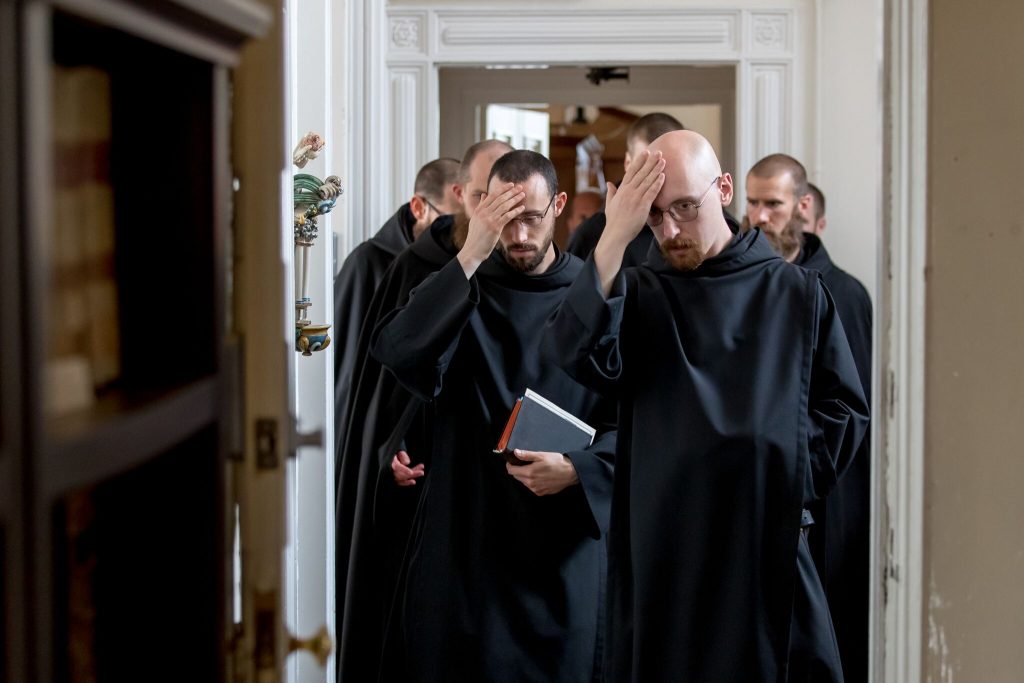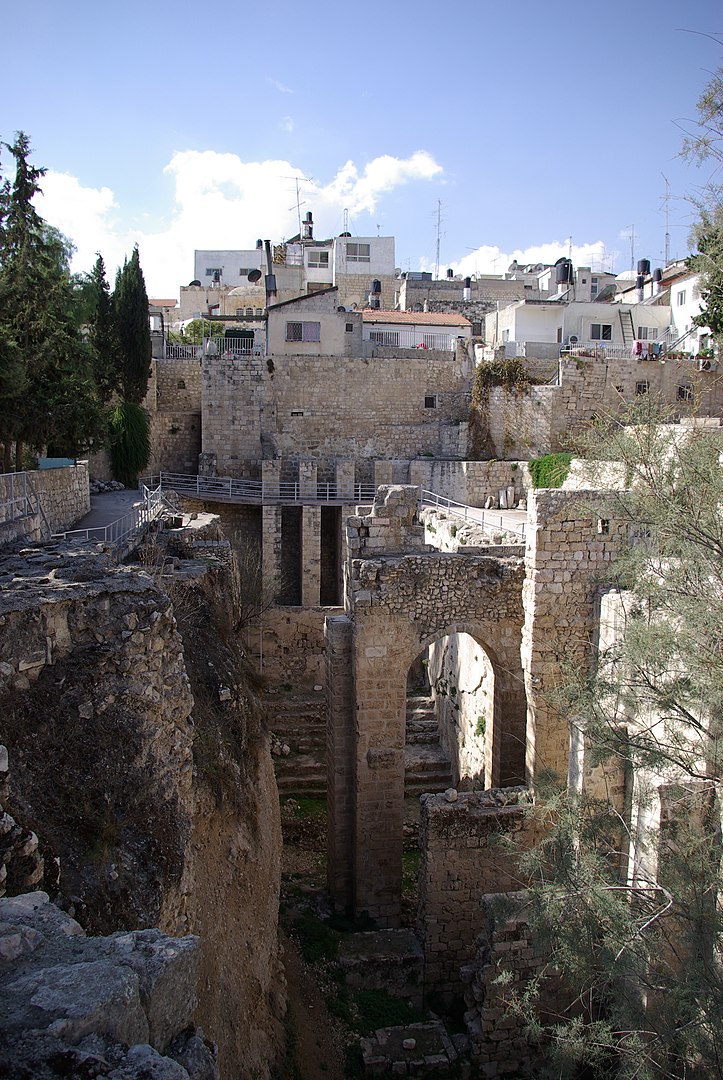In the order of their coming to religion (LXIII)

CHAPTER LXIII. Of the Order of the Community
18 Apr. 18 Aug. 18 Dec.
Let everyone keep that place in the Monastery, which the time of his entering religion, the merit of his life, or the appointment of the Abbot shall determine. And let not the Abbot disquiet the flock committed to him, nor by an undue use of his authority ordain anything unjustly; but let him ever bear in mind that he will have to give an account to God of all his judgments and all his deeds. Therefore in that order which they hold, or which he shall have appointed, let the brethren receive the kiss of peace, approach to Communion, intone the Psalms, and stand in choir. And in no place whatsoever let age decide the order, or be prejudicial to it; for Samuel and Daniel, when but children, judged the elders. Excepting, therefore, those whom (as we have said) the Abbot hath promoted with some special object, or for distinct reasons hath degraded, let all the rest stand in the order of their coming to religion; so that, for example, he who entered the Monastery at the second hour of the day must know that he is lower than he who came at the first hour, whatever may be his age or dignity. The children are to be kept under discipline at all times and by every one.
The monastery is well ordered, an acies bene ordinata in which each member has a place of responsibility and honour. Three criteria determine a brother’s place in the monastery: (1) the day and hour of his entrance, (2) the merit of his life, (3) the decision of the abbot. Should the abbot decide to move a brother upward or backward in the ranks, this will be done in consideration of how the brother lives, of the good that may come of his example, and of his readiness to collaborate loyally and in obedience with the abbot for the building up of the community. The abbot is not to disquiet the good order of the community by arbitrarily moving brothers up or down the ranks. The monastery becomes a society in which prevails what Saint Augustine calls the tranquillitas ordinis.
The peace of the celestial city is the perfectly ordered and harmonious enjoyment of God, and of one another in God. The peace of all things is the tranquillity of order. Order is the distribution which allots things equal and unequal, each to its own place. (Saint Augustine, The City of God, Book 19)
Herein lies the secret of the pax benedictina. The monastery reflects, albeit humbly and not without miseries and shortcomings, something of the order of the angelic hierarchy that praises God in ordered rank and in pulchritudine pacis. Every offense against charity, every act of forgiveness refused or deferred, every prideful thought, every bitterness or resentment held in mind, detract from the peace of the monastery.
The order of the community is most clearly manifested in the Opus Dei. Saint Benedict speaks explicitly of the kiss of peace, the approach to Holy Communion, the intonation of psalms, and the places occupied in choir. The order of the community also prevails in the refectory, the chapter room, and wherever we gather as a family. Saint Benedict’s emphasis on this point creates an atmosphere in which each member can move freely and peacefully because he knows his place in the body. One might say that the genius of Saint Benedict was to join the Pauline theology of the Body of Christ to the Roman concept of social order and to Saint Augustine’s vision of the City of God, never forgetting that the City of God descends from above, that it is God’s work, and the visible manifestation of the grace of Christ.

